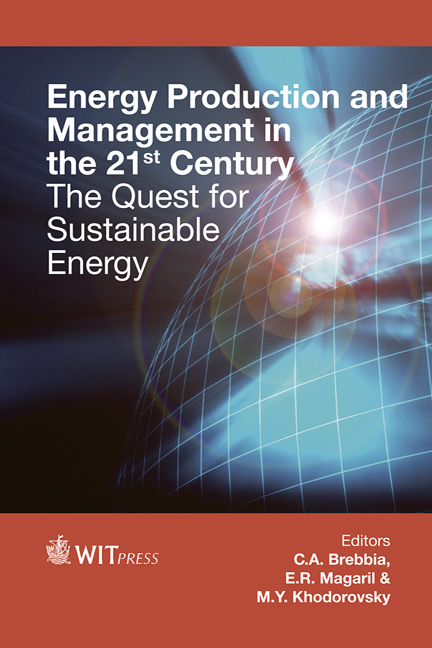Energy From Biomass: A Contribution To GHG Limitation And Sustainability Of The Local Impact Aspect
Price
Free (open access)
Transaction
Volume
190
Pages
12
Page Range
1023 - 1034
Published
2014
Size
739 kb
Paper DOI
10.2495/EQ140962
Copyright
WIT Press
Author(s)
F. Viggiano, D. Panepinto & G. Genon
Abstract
The promotion of renewable energy is mainly driven by the perspective of its production, in order to satisfy the local energy requirements and to reduce the greenhouse gas emissions. However, the final choice about the real acceptability of a biomass plant must take into account different aspects; from one side the benefits in terms of limitation of contribution to global warming and use of local resources for energy production; from the other side, the rather important effects on local air quality. In fact, it is important to evaluate the territorial aspects, the eventual need to import in order to satisfy the local energy requirement and, above all, consideration of environmental positive aspects is important, as concerns GHG limitation and the right destination of residual or waste materials that can be used in energy production. Thus, in order to evaluate advantages and limits, the useful tools consist of the classification of all the biomass that is available, the construction of energy and environmental balance, the definition of consumptions and emissions and the evaluation of air quality effects derived from meteorological and orographic conditions. These are the right instruments that can be utilized in order to evaluate the interactions of biomass plants with the global environment. These tools and instruments have been applied for two Italian case studies. The main conclusions are that the utilization of biomass for energetic purposes can lead to positive solutions towards the limitation of consequences as concerns climate change without unacceptable negative effects on a local scale, if careful localization is considered. The specific considered cases can be also indicative of a general methodology, useful for fundamental procedures of compatible energy planning. Keywords: biomass, local compatibility, GHG, air quality, district heating.
Keywords
biomass, local compatibility, GHG, air quality, district heating.





